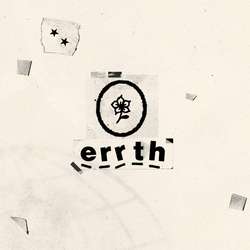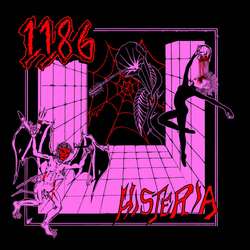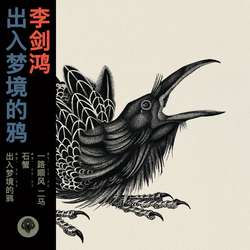Ambient music is (in the words of one Brian Eno who is usually credited with coining the term) music that can be either "actively listened to with attention or as easily ignored, depending on the choice of the listener," and that exists on the "cusp between melody and texture." Aughra is the solo ambient/electronic/experimental project of one Brent Eyestone (proprietor of Magic Bullet Records, current guitarist/ vocalist of Forensics) which has, to date, released a slew of releases that include a solo 7" (Habidad Vol.1), a split CD with Mosh Patrol, a book (Book of the Habidad Vol. 2), a DVD, and various solo and split cassette releases. Proof of Dark Matter | Light the Lights is actually the first full-length by Aughra, and it comes just as more and more people start releasing ambient type releases as side projects and or shift focus to this type of music.
Just as the title indicates, Proof of Dark Matter | Light the Lights is an album of halves or an album with a dual nature. There are the more stylistically and straightforward ambient tracks which range from short incidental pieces like "Upon the Oak Doors of the Whitechapel," "A Calculation of Worth," and "Peers Become Prey" to longer much more narrative or soundtrack-like compositions like "The Warmth of the Shallows" and "There is Nothing Tender in my Resignation." "The Warmth of the Shallows" (originally found on the limited Book of the Habidad Vol. 2) is a much more classic example of an ambient soundscape as it contains swirling noises and other sounds without holding it to a rhythmic beat of any kind. "There is Nothing Tender in my Resignation (another track previously available on Book of the Habidad Vol. 2) is much more akin to "The Warmth of Shallows" and falls more into the a rhythmic ambient style which some of the other pieces on Proof of Dark Matter | Light the Lights; there is a tension and element of suspense that Eyestone builds on this piece which creates a palpable feel or mood. "Upon the Oak Doors of the Whitechapel" is a veritable piece of incidental music, which comes across as a snippet of a larger more, realized whole composition. "A Calculation of Worth" is another incidental piece, which seems to be a part of a much more narrative whole; the track has a narrative quality which feels like the soundtrack to a book or movie.
The other half of the album contains pieces that contain more conventional structures for listeners to listen to that are more like traditional songs. The opening cricket sounds of "Et in Arcadia Ego" set up the calm white noise swell which masks subtle sounds (kind of like trying to hear a conversation over a waterfall or heavy rain). When the electronic beats kick in, there is a subtle bass like thrum which accompanies the sounds (which before were trapped under the white noise) creating a piece not unlike a more atmospheric "post" band like Nadja. "The Machinelike Registration of Proximity" is another track that falls more in line with what normally constitutes a song with its actual rhythm and well defined sections of music; Eyestone's variable compositions come through well in these types of pieces as the song title is very much like a description of how the song sounds. "And the Decision to Eviscerate" contains rhythmic elements which tie the song to more conventional definitions of a song; it holds a bit of a bounce to the beat while the other sounds seem to toll like a bell over top the brisk tempo. "Ode on an Urn" is a shockingly keyboard driven melodic song which pops up out of the blue to contrast from much of what the listener hears on Proof of Dark Matter | Light the Lights; when the heavy rhythmic elements kick in, it definitely sets itself apart from some of the other pieces on the album in its structural qualities. Listeners will also find "Return to the Red Room" to be firmly held in place by rhythmic elements while various other melodic and atmospheric sounds roll through the time one has with the song, which ties together many of the ideas and compositions together on the album.
The duality of Proof of Dark Matter | Light the Lights serves Aughra well by balancing more experimental pieces with more conventional compositional pieces to seemingly ease listeners into the ambient concept. In some respects, Brent Eyestone creates an excellent bridge for people who are not yet fully indoctrinated or rather ready to take the plunge into the full immersion of completely ambient albums. Besides an increasing personal interest and sheer love of ambient music, this album holds a very special place in my music collection ever since my purchase of the first Aughra 7" from Mr. Eyestone at a Forensics show several years ago; and even though there may be other more accomplished examples of the ambient music art form, Eyestone brings a unique aesthetic and perspective to the table with Aughra.



